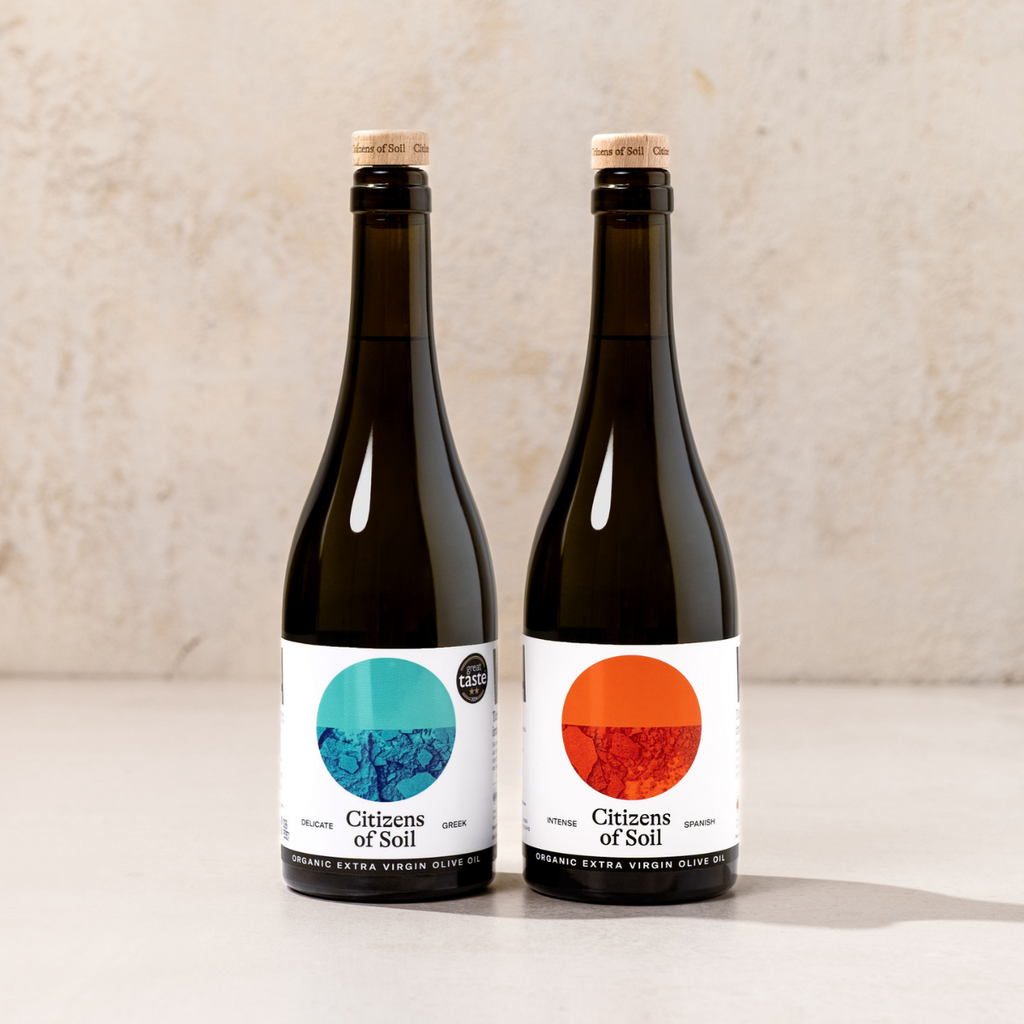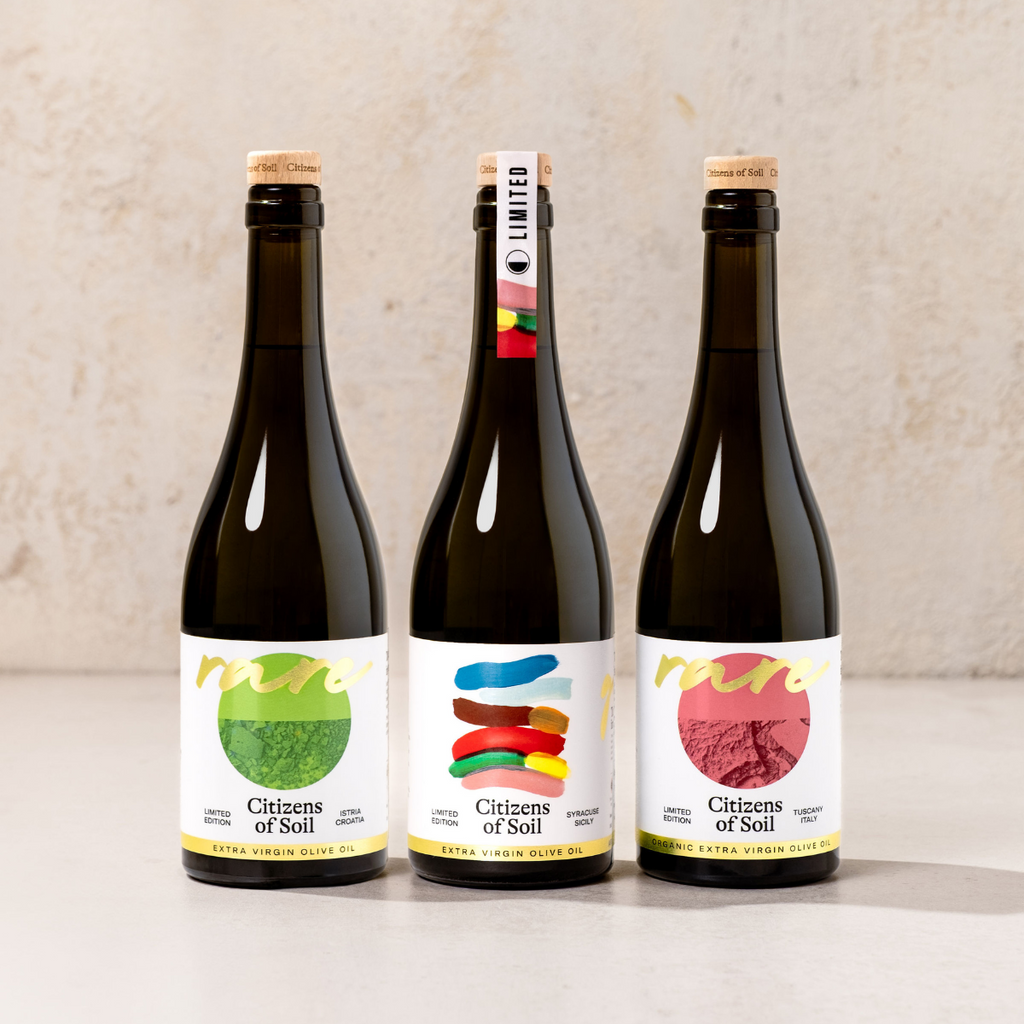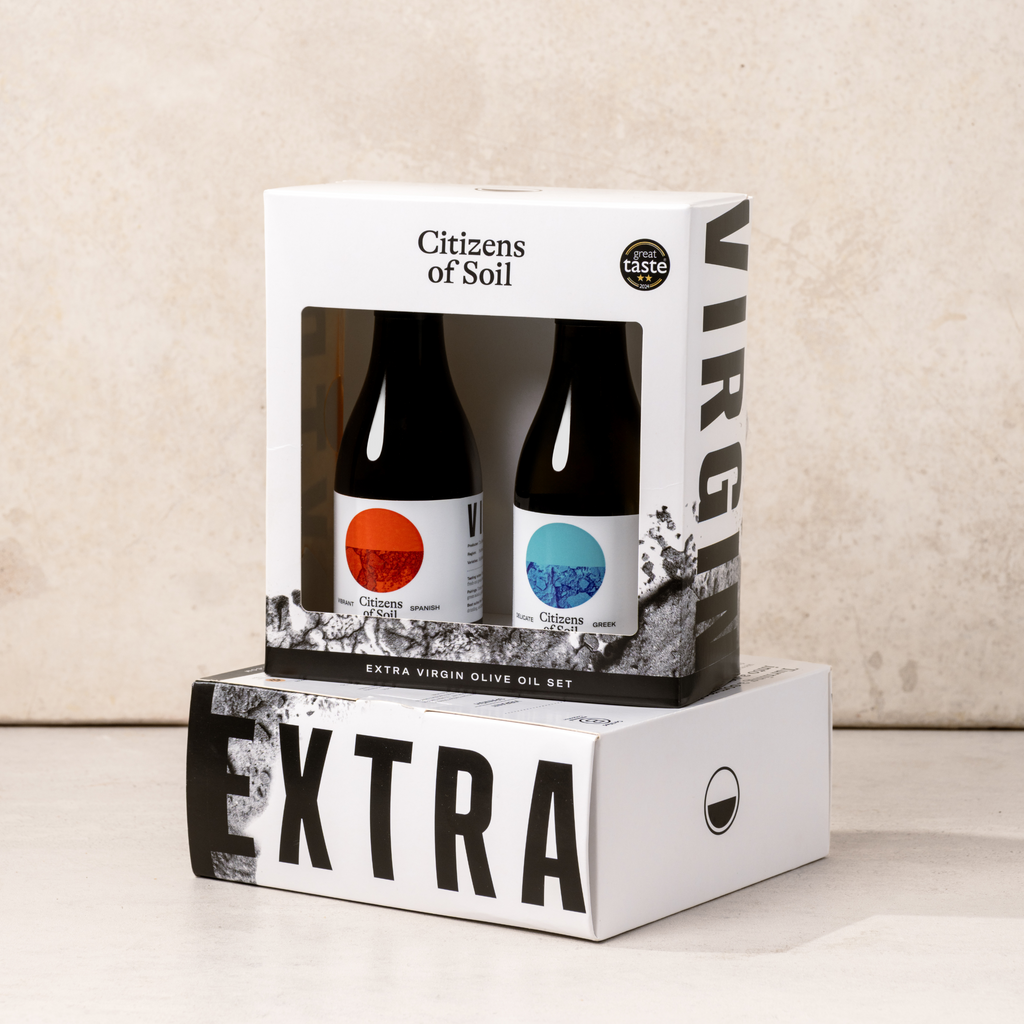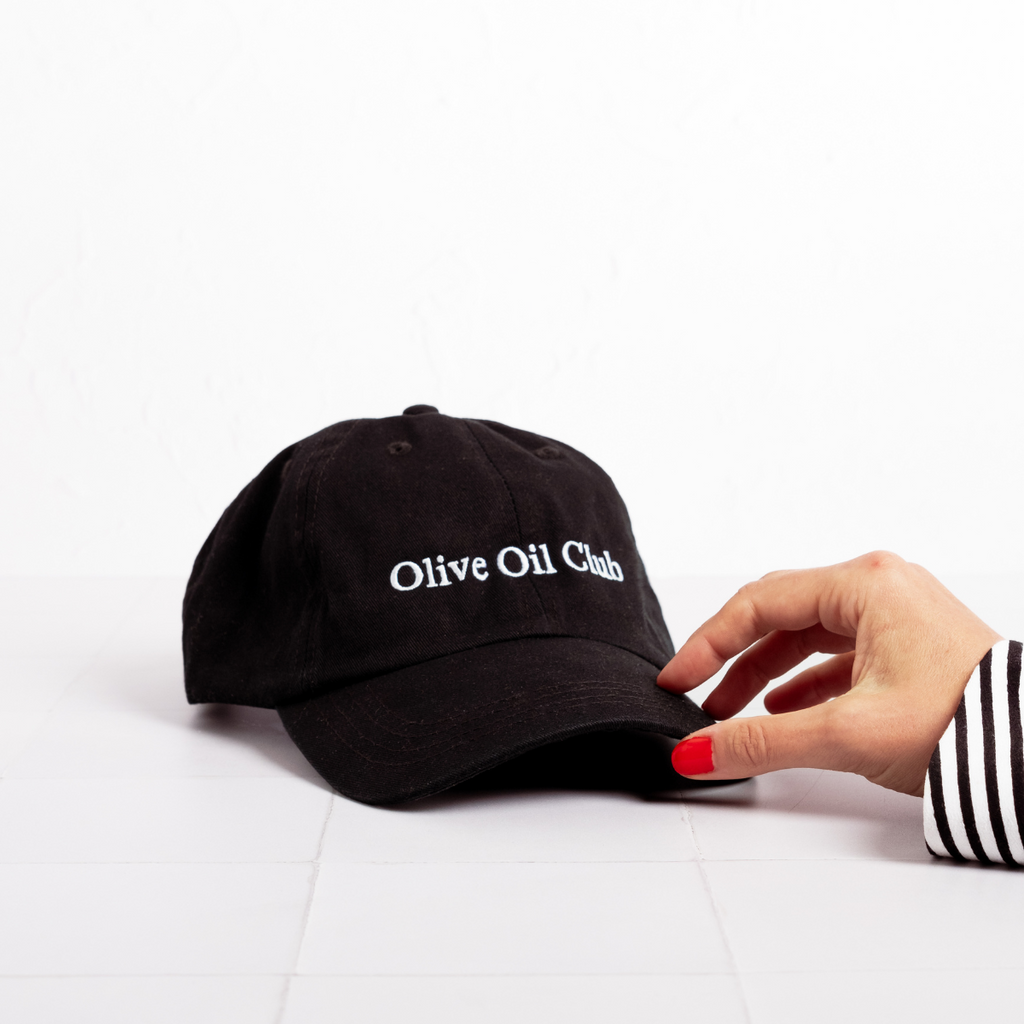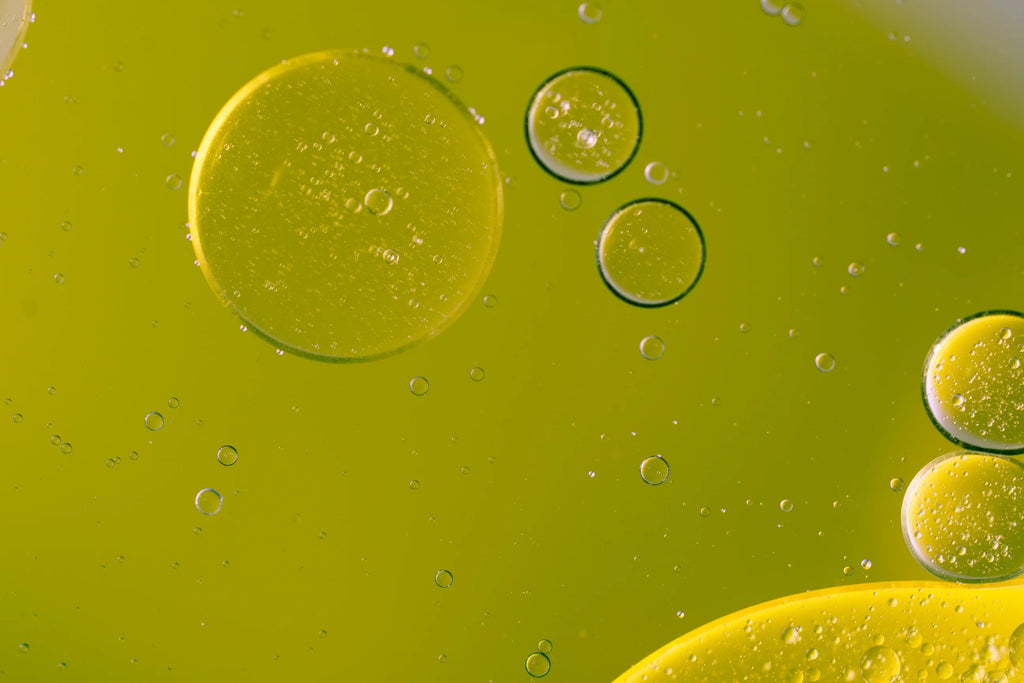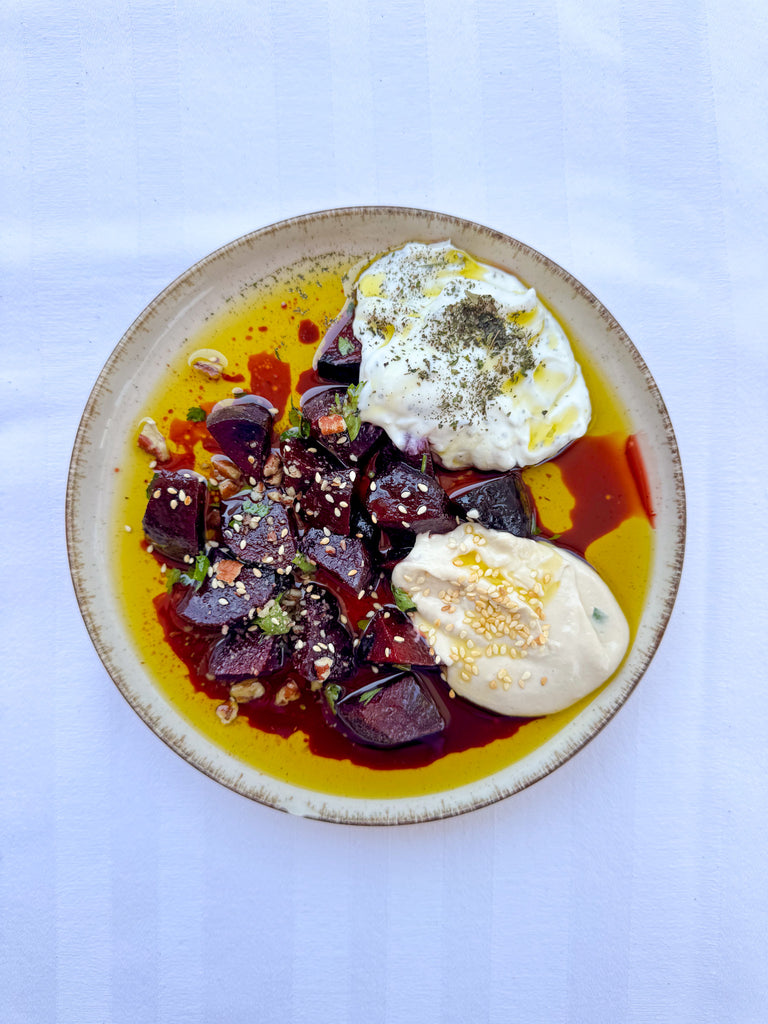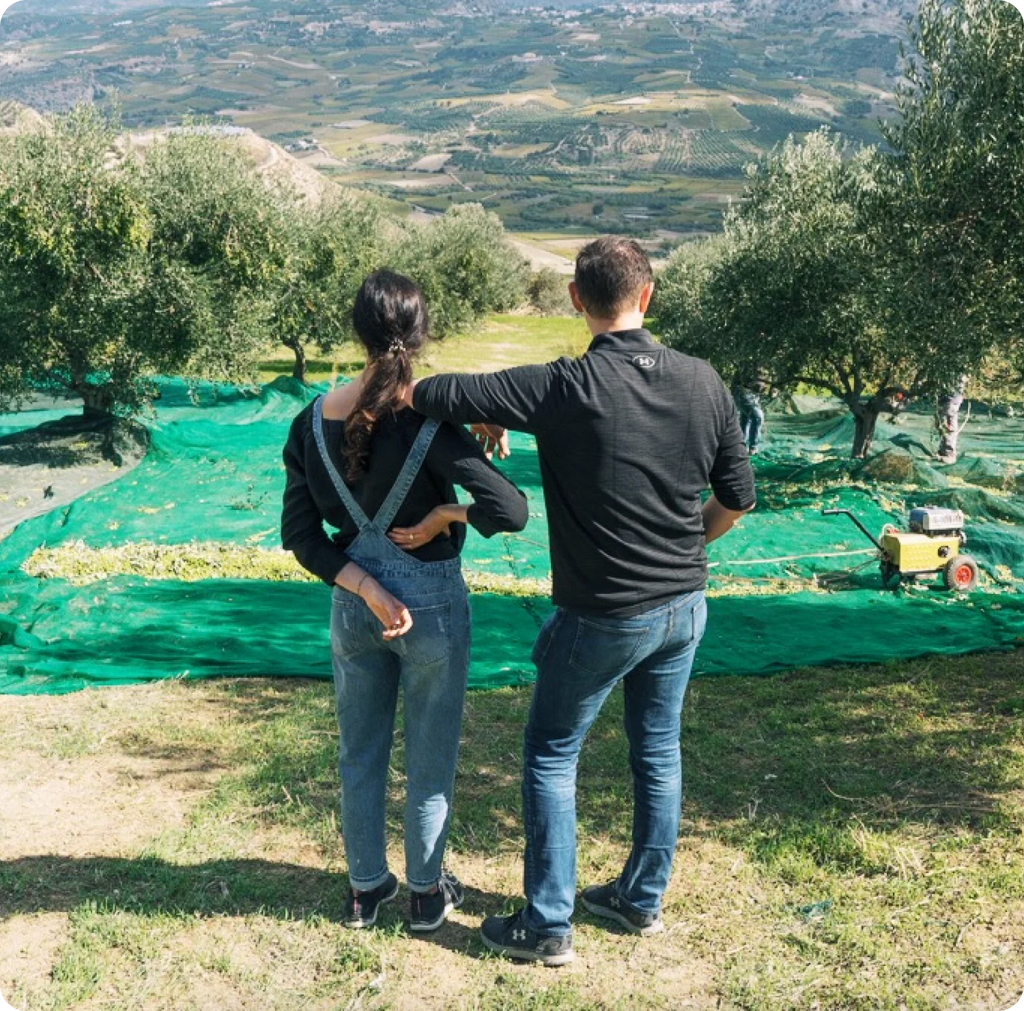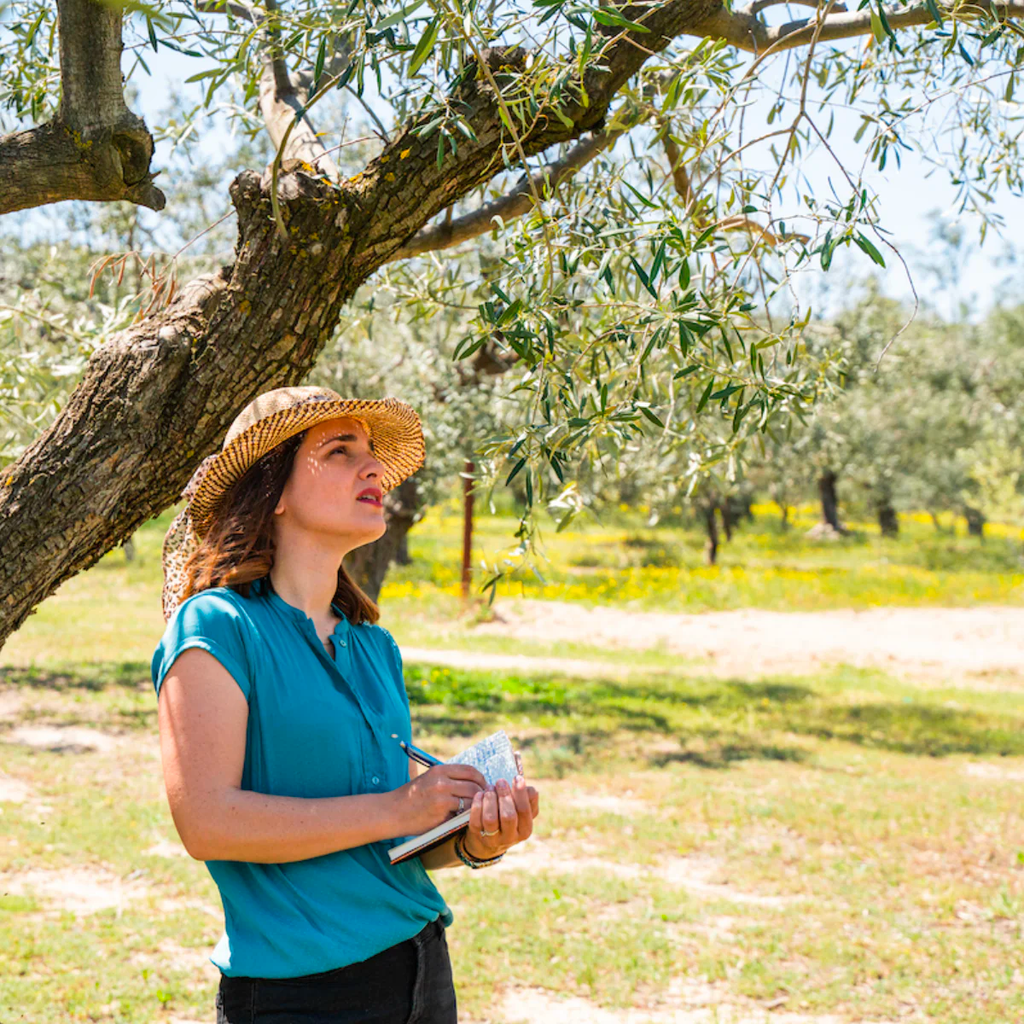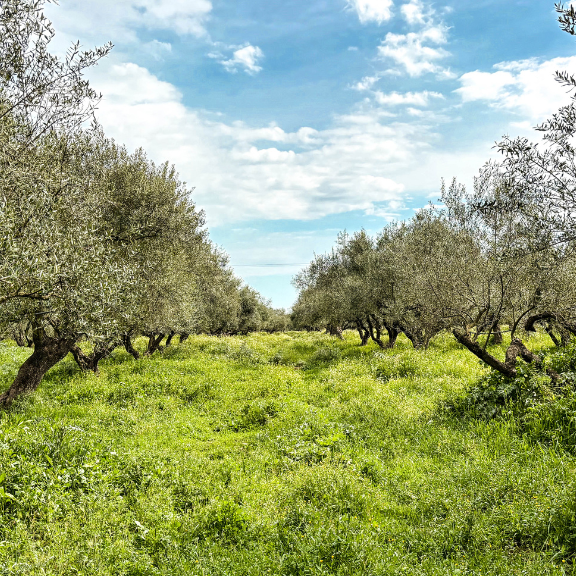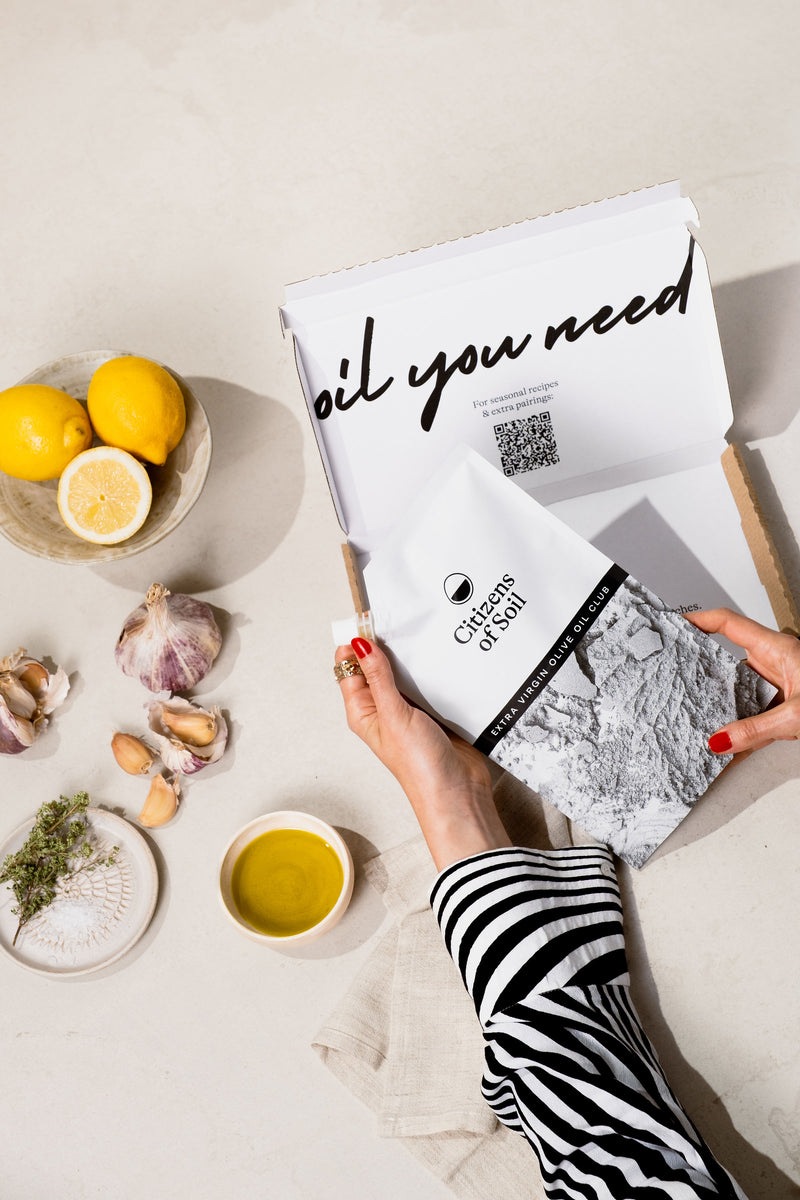Olive Oil Benefits: 5 Questions, 5 Answers
There’s a fat lot of good olive oil can do for you. There’s also a lot of misconceptions out there. It’s time to cut through the fog and get to your burning questions. Is olive oil really that healthy? Yes. Yes, it is. Here’s why...
Olive oil is almost 100 percent liquid fat. And in a world where the mere mention of "fat" makes many uncomfortable, it’s found itself unjustly feared. Yet, in the grand parade of fats, there are unsung heroes, and yes, extra virgin olive oil proudly leads that march.
We've all heard the conflicting advice, from diet fads to internet-fuelled, fear-mongering. But fear not. We’ve made it simple.
Here are the five most pressing questions about olive oil, answered.
The golden rule, BTW: it’s got to be extra virgin olive oil (EVOO).
Olive Oil Benefits Q&A
1) Is olive oil really *that* healthy?
Oh yes.
First, it’s nature’s ibuprofen. An anti-inflammatory chock full of antioxidants. A mere tablespoon equals 10% of the adult ibuprofen dosage. It fights inflammation, a common denominator in many diseases, offering a chemical-free, plant-based remedy.
Second: gut health. EVOO's polyphenols fuel gut microbes, ensuring a happy stomach and top-notch digestion, according to Tim Spector, the epidemiologist, gut-guru doctor behind Zoe.
It also helps a happy heart. Countless studies praise olive oil for its inflammation-lowering, cholesterol-shielding, and blood vessel-drama-preventing prowess.
The fourth reason? Regulating blood sugar levels. This means regulating energy crashes, sweet cravings, and reducing your risk of diabetes.
The fifth perk, often sensationalised online, links EVOO to "a reduced risk for cancer, Alzheimer’s and other neurodegenerative diseases and added protection against viruses", according to Yale School of Public Health. While not a cure-all, it's certainly proven to play a role in prevention and lowering risks.
2) Why is it so healthy?
Yes, extra virgin olive oil consists predominantly of cholesterol-friendly monounsaturated fats and is a great source of Vitamin E, but there's something extra here...
It's down to this dynamic duo: antioxidants (specifically polyphenols) and oleic acid.
Antioxidants are, well, anti-oxidation. As they fight this off, they neutralise harmful free radicals, which are unstable molecules with unpaired electrons that can damage cells and contribute to disease, illness, and aging.
EVOO’s antioxidants lend some electrons to stabilise these free radicals, lowering the risk of chronic diseases.
Polyphenols are one of the main antioxidants in olive oil, responsible for that some of the organoleptic properties you may have noticed, such a the bitterness on the palate, the pepperiness in the back of throat, and even for the lasting "fresh" fruity or grassy notes over time. They’re most abundantly found in extra virgin oils. The more processed the olive oil, the less polyphenols.
Some research shows that polyphenols may also slow down the absorption of carbs. This means less glucose entering the bloodstream from the liver, more control of blood sugar, and potentially reducing the risk of type 2 diabetes.
It would be rude not to mention oleic acid here—the main monounsaturated fatty acid in olive oil. It’s the secret sauce that makes olive oil an excellent choice for cooking.
Oleic acid is more stable than polyunsaturated fats, especially at high temperatures. This stability makes extra virgin olive oil less susceptible to oxidative damage during cooking. In simpler terms, it holds up like a champ when things get hot, but not too hot.
3) How much do I need to have?
Mediterranean amounts are ideal, but you can manage well with four or five tablespoons a day.
A spoonful a day has been a big trend in this space. Support from Kourtney Kardashian, J Lo, and Queen Bey may have had something to do with that.
Celebrity endorsements aside, the real deal is in following PREDIMED recommendations. Pour it generously over cold salads, stewed legumes, roasted veg, and frying pans for genuine benefits.
Findings may be inconsistent, but research suggests even half a tablespoon a day can cut heart disease risk by 14%. For tangible benefits in your daily life, make it more than just a drizzle—POUR.
4) But isn’t olive oil bad for you?
Say it with us: ‘FAT IS GOOD’.
Especially when it's unrefined, like extra or virgin olive oils.
There was a time when it was said that heating extra virgin olive oil could make it carcinogenic. But this is simply not the case. The idea stems from misconceptions around smoke points, confusion with lower-quality oils, and outdated information.
We did a whole blog post about cooking with olive oil to address temperatures and uses in the kitchen.
Also, we don't need to remind you that the Mediterranean diet continues to be recognised as the healthiest way to eat in the world, with its traditional populations designated as "Blue Zones" for their longevity.
And these very people with this very diet have been consuming extra virgin olive oil as a primary fat across every mealtime spanning back to antiquity.
As Dr Simon Poole explains: "It is impossible to take olive oil out of the science of the Mediterranean Diet. There is certainly no justification for any suggestion that an alternative cooking fat could be used to achieve the effects of the Mediterranean Diet."
5) Isn’t olive oil just like any other seed oil?
Absolutely not.
EVOO is crushed and squeezed olives, without any heat or chemicals involved in this process. It’s practically a fresh fruit juice.
Vibrant, teeming with antioxidants, and with a shelf life of 18-24 months when unopened.
Outside the virgin olive oil category, most olive oils are refined, highly-processed, bleached, and deodorised—all aimed at creating a shelf-stable, lifeless oil at a lower cost. Comparing extra virgin to regular is akin to comparing freshly squeezed orange juice to Fanta.
Seed oils, aptly named, are oils extracted from seeds. I’m talking sunflower, canola, soybean. They undergo extensive processing, reducing any nutritional value the original plant offered. The bottom line? Not even in the same ball game as EVOO.
—Author: Kate Carruthers

